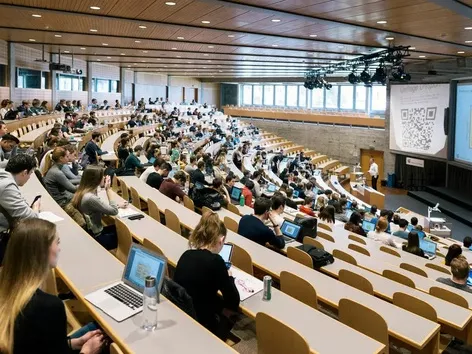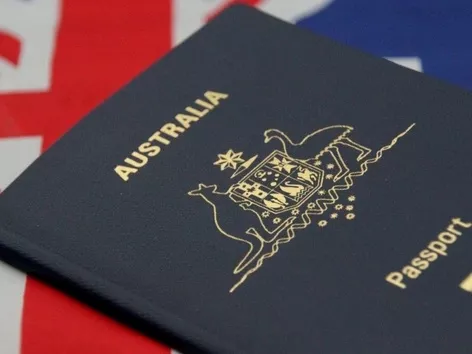Higher education in Europe 2024/2025: which European countries offer free or very cheap tuition to international students?

To get a higher education in Europe is the dream of many applicants in different parts of the world. However, most people think that it is expensive and almost impossible, although this is not the case at all. Find out which European countries offer free or very cheap tuition to international students
The cost of higher education in Europe is an important factor that affects the choice of a place to study and is generally a key indicator that students pay attention to when considering obtaining higher education abroad.
Despite the essential requirements that EU countries put forward for workers, digital nomads and pensioners (high temporary salaries, tens of thousands of euros in personal accounts, proof of tax payments, etc.), the authorities are more loyal to students. The good news is that in many places you can get a high-quality higher education practically for free.
The most attractive destinations for free and almost free education in Europe are discussed later in this article.
Greece
Representatives of any country in the world can obtain a higher education in Greece almost free of charge. The main thing is to pay the student fee (on average 500-600 euros per year).
However, most study programs are taught in Greek, so you should take language courses before enrolling to increase your chances of admission and study.
- Rules for admission to undergraduate studies in Greece:
There are no entrance exams in Greece. Enrollment takes place on the basis of your school-leaving certificate. At the same time, it must be translated into Greek and notarized.
- List of documents for admission to Greek universities for the bachelor's degree:
1. Application with a photo of the applicant.
2. Confirmation of the absence of obstacles to admission from the Ministry of Education of Greece.
3. A document confirming the origin and citizenship of the applicant (certificate on the absence of close relatives with Greek citizenship).
4. Birth certificate.
5. A written statement about the lack of previously acquired Greek education.
6. Certificate of proficiency in the Greek language.
7. Summary.
- Rules for admission to a master's degree in Greece:
For admission to master's or doctoral programs, a bachelor's degree must be confirmed. This process takes an average of 3-8 months and is conducted at the National Academic Recognition Information Center (DOATAP).
- List of documents for admission to Greek universities for master's degree:
1. Declaration about the authenticity of documents.
2. Receipt for payment of state duty.
3. Copies of the certificate and foreign passport.
4. A copy of the bachelor's diploma with an appendix, certified by an apostille.
5. Confirmation of successful completion of the language program.
6. Document about the chosen place of study.
Importantly! The DOATAP commission verifies the conformity of the program completed by the student with its Greek counterparts. If discrepancies are found, the student will have to retake the subjects in Greek.
- When to apply for admission to Greek universities?
Documents must be submitted within 10 days at the end of July. Enrollment takes place in mid-late August. After receiving approval from the Greek university to study, you can apply for a student visa at the Greek consulate.
France
Some public higher education institutions in France offer almost free tuition for international students. A bachelor's degree will cost an average of 180 euros per year, and a master's degree will cost 250 euros. However, knowledge of the French language is an important condition for learning.
- Documents for admission to a bachelor's degree in France:
1. Confirmation of the level of French proficiency - B2 level is required for admission to the bachelor's program.
Generally, applicants take the DELF exam, but TCF (Canadian Language Test) exam results are also accepted.
2. Certificate and transcript of grades for recent years.
3. Summary
4. Letter of motivation
5. In addition, applicants can provide: certificates and diplomas, letters of recommendation, etc.
- Documents for admission to a master's degree in France:
1. Confirmation of the level of French proficiency - C1 level is required for admission to the master's program.
2. School certificate.
3. A diploma with an appendix or a certificate that you are studying in the last year.
4. Work certificate - if the educational institution has been completed.
5. Summary.
6. Letter of motivation.
7. Letters of recommendation, for example, from work or from an educational institution.
8. In addition, you can provide: a certificate confirming knowledge of the English language, confirmation of completed courses, research plan, other documents as desired.
- When to submit documents for admission to French universities?
Submission of documents starts in October and ends in December. The results will be known by the end of April. All documents must be translated into French and notarized.
You can get advice on education abroad on the Visit World portal. Our lawyers can answer all your questions about the current rules for admission to certain educational institutions, as well as help with the preparation of documents for admission and study abroad. To order a specialist consultation, follow this link.
Austria
The cost of studying at an Austrian higher education institution starts at 750 euros per semester. However, foreigners who have received a student residence permit can work 20 hours a week - often this is enough to pay for their studies.
A nice advantage is the opportunity to get an education in both German and English. However, even for admission to English-language programs at state universities, knowledge of the German language at least at the A2 level is required.
Applicants who do not speak German at a level sufficient for study (usually C1) can take preparatory courses. Within the framework of this program, students can improve their knowledge of the language from level A2 to level C1. At the preparatory department, which lasts up to two years, you can take additional courses if the certificate lacks the necessary subjects.
- Documents for admission to a bachelor's degree in Austria:
1. Confirmation of language knowledge: for German - ÖSD/TestDaF/GOETHE certificate, for English - IELTS / TOEFL.
2. Certificate and transcripts with grades (translated, notarized, apostilled).
3. Letter of motivation.
4. Application for admission.
- Documents for admission to a master's program in Austria:
1. Confirmation of language knowledge: for German - ÖSD/TestDaF/GOETHE certificate, for English - IELTS / TOEFL.
2. Diploma.
3. Statement from the account.
4. Letter of motivation.
5. Application for admission.
It should be noted that previously a certificate of Nachweis der besonderen Universitätsreife was required, which confirms that the applicant has the right to enter a university in his country. However, in 2022, many universities excluded it from the list of mandatory documents.
- When to submit documents for admission to Austrian universities?
You can enter the preparatory department at universities in Austria twice a year:
- Winter semester - here recruitment starts in July and ends in October, and the semester itself starts in October.
- The summer semester begins in March, and you can apply for it from January to February.
Importantly! These terms may vary depending on the university.
Germany
Foreigners can get an education in public higher education institutions in Germany for free, with the exception of Bavaria and Baden-Württemberg. You will only need to pay student fees - from 300 to 600 euros per year.
Also, as in Austria, you can work here up to 20 hours a week and without restrictions on holidays.
The language requirements are as follows: studying at the university requires knowledge of German at the C1 level, as well as English at the B2 level. For admission to the preparatory department - German at the B1 or B2 level.
- Rules for admission to a bachelor's degree in Germany:
After finishing school, you can enter a university in Germany through preparatory courses (Studienkolleg), which allow you to catch up and adapt to the German education system. If you have already studied at a higher education institution in your country of origin and have completed at least one year of study, you can apply for a similar course at a German university.
Entrance exams are usually not held, the basis for enrollment is a complete package of documents and in certain cases a competition of grades.
Package of documents for admission to a bachelor's degree in Germany:
1. Certificate with a certified translation.
2. Confirmation of language knowledge.
3. Letter of motivation.
4. Summary.
5. Letters of recommendation.
Importantly! In order to obtain a student visa, you need a statement of the availability of money in the account (amount per year - 11,904 euros).
- Rules for admission to a master's degree in Germany:
On the basis of a bachelor's degree, admission to a master's degree in the same or a related specialty is available.
Package of documents for admission to a master's degree in Germany:
1. Diploma of higher education or transcript of grades.
2. Certificate of completion of bachelor's degree for the year of admission.
3. Confirmation of language knowledge (TestDaF certificate).
4. Letter of motivation.
5. Summary.
6. Letters of recommendation.
Additionally, higher education institutions may request information about experience, portfolio, research project, etc.
Importantly! Documents for admission to German universities are usually submitted online through the Uni Assist portal. However, some universities accept applications directly through their own websites.
- When to submit documents for admission to German universities?
- For the winter semester – until mid-July.
- For the summer semester – until mid-January.
In individual universities, these dates may change, so it is better to check them on the website of a particular university.
Slovakia
In Slovakia, students from abroad can study at public universities for free, but only on the condition that the studies are conducted in the Slovak language and within the standard term of the program.
In general, educational programs in the country are offered in both Slovak and English languages. The cost of English-language programs varies depending on the university and can range from 500 to 12,200 euros per year. This applies to both undergraduate and graduate degrees.
- Documents for admission to a bachelor's degree in Slovakia:
1. Application for admission (usually submitted through the university system or by mail).
2. Certificate of secondary education with an appendix (if necessary, translation into Slovak and certification).
3. Certificate of language proficiency (usually level B1–B2 in Slovak, studies in Slovak language; for English programs – certificate for level B2).
4. Resume and letter of motivation (at the request of the university).
5. Confirmation of payment of the registration fee (usually 30-80 euros, depending on the educational institution).
- Documents for admission to a master's degree in Slovakia:
1. Bachelor's diploma and application (a certified translation into Slovak or English is required).
2. Certificate of language proficiency (Slovak B2 and above; for English programs – level C1).
3. Resume and cover letter in which you describe your motivation and plans.
4. Recommendations from teachers or employers (not required at all universities).
5. Payment of the registration fee for submitting documents.
- When to submit documents for admission to Slovak universities?
Typically, applications for the fall semester must be submitted by the end of February or March, and entrance exams take place from June to September. However, for programs with creative entrance exams, for example in art universities, the application must be submitted earlier - by the end of November.
Submissions must be made through university systems or a national platform.
Studying in Europe is a great opportunity to get a good education and build a career in any corner of the world. Given that some educational institutions offer free higher education in Europe, this is a good prospect for future students.
We will remind you! Chevening Scholarships is a prestigious program for international students in Great Britain, which allows talented students to get a free education. We have already told you who can apply for a scholarship and how to apply.
Ihor Usyk - head of Visit World's legal department
Products from Visit World for a comfortable trip:
Travel guide for 200 countries;
Legal advice from a local specialist on visa and migration issues;
Travel insurance around the world (please select the country of interest and citizenship to receive services);
Medical insurance all over the world.
We monitor the accuracy and relevance of our information, so if you notice any errors or inconsistencies, please contact our hotline.
Recommended articles
2 min
Education
The Best Student Cities in the Netherlands in 2024: where do most foreigners study and why?
In 2024, three Dutch cities were included in the top 50 best student cities in Europe. Find out where you can get a good education in the Netherlands and which cities are considered the best for international students
07 paź. 2024
More details1 min
Education
Switzerland & US Streamline Short-Term Training for Young Professionals: what is known?
Switzerland and the USA signed an agreement to simplify the conditions of short-term training for young professionals. The proposed changes will take effect as early as November 30, 2024. Find out what benefits await future students
26 paź. 2024
More details1 min
Education
Australia offers international students a promising path to permanent residence. Find out which study program you should choose to get a chance to apply for a residence permit in Australia
02 lis. 2024
More details2 min
Education
Best cities for studying abroad in 2025: where do most students plan to study?
Choosing the perfect study abroad destination can make a big difference in your academic and personal growth. Find out which cities QS ranked as the best for international students in 2025
10 lis. 2024
More detailsAll materials and articles are owned by VisitWorld.Today and are protected by international intellectual property regulations. When using materials, approval from VisitWorld.Today is required.
